Jun 3, 2025 11:25 AM
In Memoriam: Al Foster, 1943–2025
Al Foster, a drummer regarded for his fluency across the bebop, post-bop and funk/fusion lineages of jazz, died May 28…
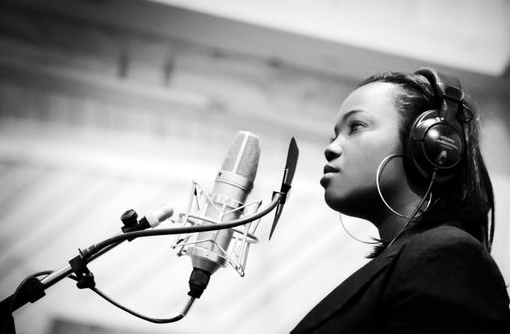
Saxophonist and vocalist Camille Thurman is part of a growing contingent of Black women jazz artists tapping into the power of virtual platforms and claiming the right to speak.
(Photo: Sylvain Durand)Since the onset of the COVID-19 pandemic, virtual interactions on Facebook, Instagram Live and Zoom quickly replaced jazz-club hangs, where performers and fans previously communed to rap about an array of topics and ideas, political and otherwise.
As the world continues to grapple with the pandemic and rippling calls for racial and gender justice sparked by the recent police slayings of George Floyd, Tony McDade, Breonna Taylor and countless other Black people, the virtual world has taken on new meaning. Saxophonist Tia Fuller, saxophonist/vocalist Camille Thurman and vocalist Charenée Wade are part of a growing contingent of Black women jazz artists tapping into the power of virtual platforms and claiming the right to speak.
In May, when the pandemic already had closed down the country, Thurman was sitting at home, contemplating what it meant for her, her fellow musicians and students not to be able to play together.
“I thought about what it was like for myself when I was 14, 15, 16 years old,” she said. “‘Man, you know, I wish there was a resource where I could talk to or at least get advice from other musicians ... that also look like me. And [to] also have a space where it’s safe to ask questions.’”
From these ruminations, Thurman initiated The Haven Hang, a virtual program geared toward the mentorship of young women and girls.
“I found that there’s a space that’s still needed,” Thurman said recently. “[Y]oung women need to know that there’s other women that they can see doing this, and also that they’re accessible. They can contact them, they can ask those questions.”
The series falls in line with programing by established institutions around the country—Chamber Music America’s Performance Plus, Jazz House Kids’ CHiCA Power, Berklee’s Institute of Jazz and Gender Justice, NJPAC’s Geri Allen Jazz Camp—aiming to create gender parity in jazz. Through her series, Thurman has fostered a space where the voices and opinions of Black women in jazz are the focus with guests like violinist Regina Carter, vocalists Rene Marie and Dee Dee Bridgewater, and pianist Bertha Hope.
“We’re in some very difficult times right now, but we have to come out as individuals and as women, because we have dealt not only with systematic racism, but we have dealt with systematic sexism,” Bridgewater said during one session, gesturing toward the concept of intersectionality, while also urging women to surround themselves with things that make them feel powerful and strong.
In another Haven Hang interview with jazz matriarch Hope, the theme of racial and gender justice was echoed.
The pianist discussed colorism and police violence toward jazz musicians like Bud Powell, Miles Davis and her late husband, Elmo Hope, as “sad pieces of police brutalizations that go back that far and affected the music industry.” She also drove home her point that “learning the history of the music and how it has left women out is something worthwhile to do.”
Like Bridgewater, Hope also urged women to be agents for social change: “[Sexism] won’t stop without your action. Men are not going to do it. You are going to have to do it. Women are going to have to do it.”
Fuller’s Instagram series, Talk to Tia, which launched shortly after The Haven Hang, spotlights both men and women in jazz. Although the saxophonist didn’t create the series intending to address racial and gender issues, the themes still have repeatedly surfaced in interviews.
“I’m really trying to dig into the spirit of the moment,” she said. “Because we don’t have these festivals going on, [there isn’t] a place where we can really get this social activism out through our music. We are now having to go inward and create other opportunities ... digging deeper within ourselves to create more of a voice.”
Sprinkled throughout the conversations with many of Thurman and Fuller’s guests has been discussion of the power of self-directed research in shaping political consciousness.
“I’ve found a lot of inspiration from so many powerful women,” drummer Terri Lyne Carrington said during a Talk to Tia interview, citing the work of Black writers like Audre Lorde and Toni Morrison as critical to her thinking.
During the pandemic, Black women also have engaged the virtual world in ways beyond the interview format.
As an educator at numerous universities—the Aaron Copland School of Music at Queens College, The Juilliard School and the Peabody Institute at Johns Hopkins University—Wade has been working to support her students’ remote learning. She and singer Carla Cook began hosting listening parties with their Juilliard students via Zoom as a way to recreate the community musicians had access to prior to COVID-19 gripping the world.
Wade also took to social media to express her thoughts about ongoing police-involved killings, offering her followers advice in a moment when images of Black death circulate quickly on social media, sending waves of trauma through the community: “I think the greatest revolution for Black people—but Black women, especially right now—is self-care ... because we’re already carrying a lot of weight.”
While the conversations Fuller, Thurman, Wade and others have offered up on these platforms have reached well beyond social justice issues, their very existence serves as an expression of agency and resistance. It can be read as a resolute call for Black women jazz artists to be seen, heard and perceived as fully human, while also reinforcing the innate bond among the performers. DB
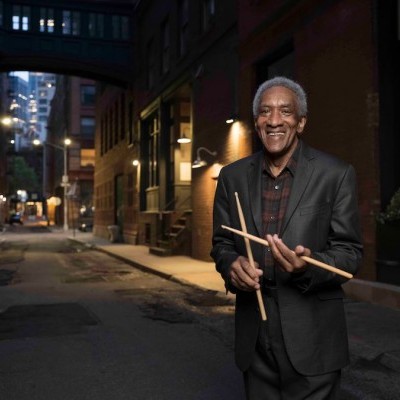
Foster was truly a drummer to the stars, including Miles Davis, Sonny Rollins and Joe Henderson.
Jun 3, 2025 11:25 AM
Al Foster, a drummer regarded for his fluency across the bebop, post-bop and funk/fusion lineages of jazz, died May 28…
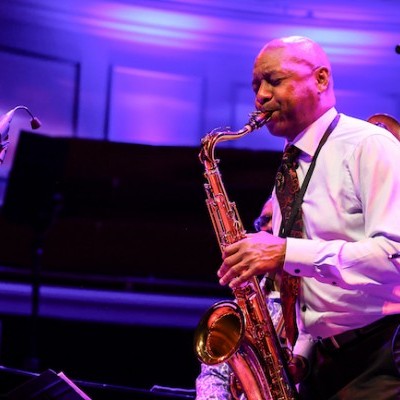
“Branford’s playing has steadily improved,” says younger brother Wynton Marsalis. “He’s just gotten more and more serious.”
May 20, 2025 11:58 AM
Branford Marsalis was on the road again. Coffee cup in hand, the saxophonist — sporting a gray hoodie and a look of…
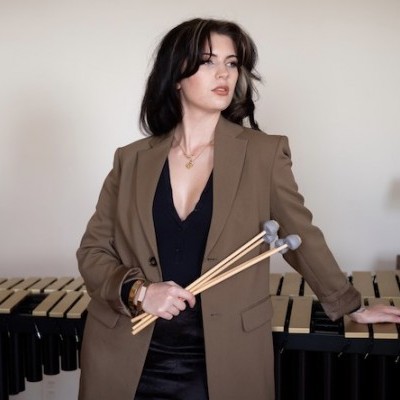
“What did I want more of when I was this age?” Sasha Berliner asks when she’s in her teaching mode.
May 13, 2025 12:39 PM
Part of the jazz vibraphone conversation since her late teens, Sasha Berliner has long come across as a fully formed…

Roscoe Mitchell will receive a Lifetime Achievement award at this year’s Vision Festival.
May 27, 2025 6:21 PM
Arts for Art has announced the full lineup for the 2025 Vision Festival, which will run June 2–7 at Roulette…
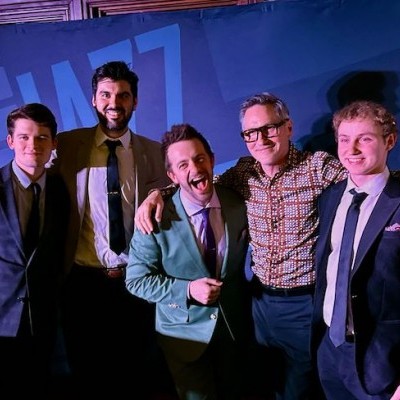
Benny Benack III and his quartet took the Midwest Jazz Collective’s route for a test run this spring.
Jun 3, 2025 10:31 AM
The time and labor required to tour is, for many musicians, daunting at best and prohibitive at worst. It’s hardly…